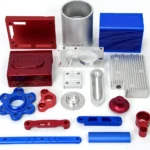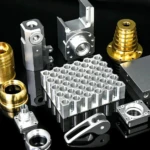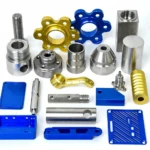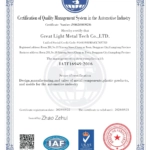Ceramic CNC tool factories play a crucial role in the manufacturing industry, especially in the production of precise parts and components. These factories specialize in using advanced computer numerical control (CNC) machining technology to manufacture complex ceramic tools and parts with high precision and accuracy. In this article, we will dig into the world of ceramic CNC tool factories and explore its functions, services and benefits.
The cutting-edge of ceramic CNC tool manufacturing is the application of five-axis CNC machining technology. This advanced technology can produce complex ceramic components with complex geometry, which is essential in various industries such as aerospace, automotive and medical equipment. Five-axis CNC machining allows for simultaneous movement of Fiveaxes, providing unparalleled flexibility and precision during the manufacturing process.
One of the key benefits of ceramic CNC tool factories is their ability to provide customized precise machining services. This means that the customer can specify its exact requirements, including material selection, dimensions and tolerances, and the factory will produce the parts accordingly. This customization level is especially valuable in industries where standardized parts may not meet specific application requirements.
In addition to precise processing, the ceramic CNC tool factory also provides a range of post-processing and finishing services. These may include surface treatment, polishing and coatings that can improve the performance and durability of the final product. By providing one-stop solutions for precise machining and post-processing, these plants can simplify production processes, reduce lead times and increase overall efficiency.
Material selection is also an important consideration in the manufacturing of ceramic CNC tools. Ceramic materials are known for their excellent hardness, wear resistance and thermal stability, making them ideal for high performance and reliability applications. Common ceramic materials used in CNC processing include silicon carbide, alumina and zirconia, each with its unique characteristics and advantages.
When choosing a ceramic CNC tool factory, factors such as equipment capabilities, production capacity and quality control procedures must be considered. A well-known factory should be equipped with advanced CNC processing equipment, a skilled workforce and a strong quality control system to ensure that the product meets the required standards.
In short, ceramic CNC tool factories play a crucial role in the manufacturing industry, providing customized precise processing services and post-processing solutions for a wide range of applications. By leveraging advanced five-axis CNC machining technology and providing a wide range of ceramic materials, these factories can produce complex components with high accuracy and accuracy. Whether you need custom parts for aerospace, automotive or medical equipment, the well-known ceramic CNC tool factory can help you achieve your production goals.
FAQ:
Q: What is five-axis CNC machining and how does it benefit ceramic tool manufacturing?
A: Five-axis CNC machining is a technology that allows for the movement of five axes simultaneously, providing unparalleled flexibility and precision during the manufacturing process. This technology enables it to produce complex ceramic components with complex geometries, which are essential in various industries.
Q: Can the ceramic CNC tool factory provide customized precision processing services?
A: Yes, many ceramic CNC tool factories offer customized precision machining services that allow customers to specify their exact requirements, including material selection, dimensions and tolerances.
Q: What post-processing and completion services do ceramic CNC tool factories usually provide?
A: Common aftertreatment and finishing services include surface treatment, polishing and coatings that can improve the performance and durability of the final product.
Q: What is the most commonly used ceramic material in CNC processing?
A: Common ceramic materials used in CNC processing include silicon carbide, alumina and zirconia, each with its unique characteristics and advantages.
Q: How to choose a well-known ceramic CNC tool factory?
Answer: When choosing a ceramic CNC tool factory, please consider factors such as equipment capabilities, production capacity and quality control procedures. A well-known factory should be equipped with advanced CNC processing equipment, a skilled workforce and a strong quality control system to ensure that the product meets the required standards.



















